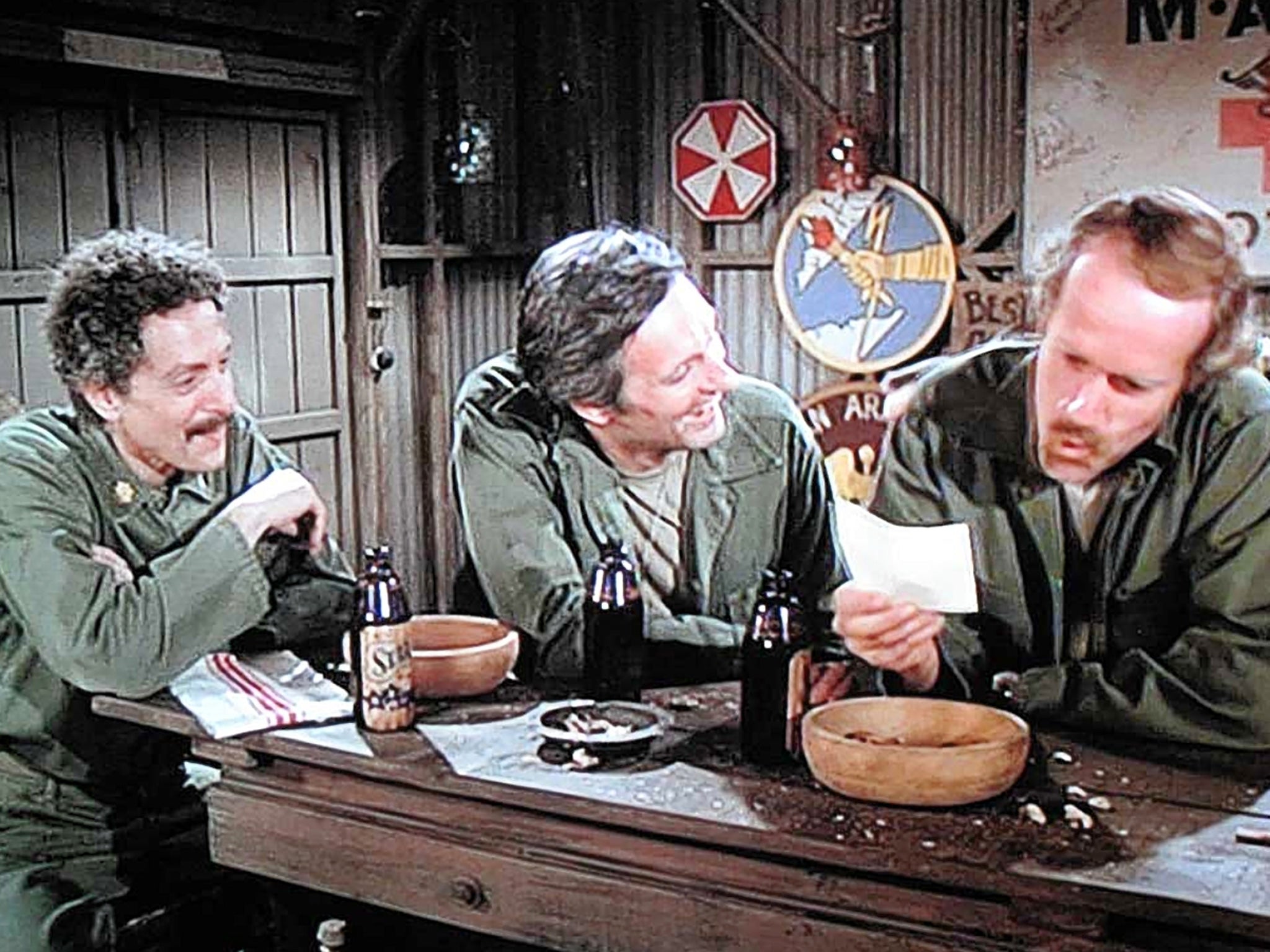Allan Arbus: Photographer who went on to become an actor best known on television in 'M*A*S*H'

Sometimes a character can take a disproportionately large place in people's memories of a film or television series, an effect that is, in large part due to the actor. So it was with Major Freedman, the M*A*S*H psychiatrist played by Allan Arbus. Though he only appeared in 12 episodes it became a signature role, in part because of how deeply he empathised with the character, possibly through witnessing the mental difficulties faced by his wife, the photographer Diane Arbus.
Arbus was the son of a stockbroker and an English teacher, and dropped out of City College to take an advertising job at Russek's department store. The store-owner's daughter, Diane Nemerov, was studying painting but becoming increasingly frustrated and she and Arbus began seeing exhibitions together. Allan bought her first camera and Russek's employed them to take fashion photographs. He later recalled: "in confronting the world, we were really always tremendous allies". They married in 1941 and during the war he was a photographer in the Army Signal Corps, spending some time in India.
After the war the Arbuses added Vogue, Glamour and Harper's Bazaar to their clients. Broadly speaking, she was the art director and he the technician. Individually, both did more personal work and in 1951, becoming disillusioned with their commercial work, they embarked on a European 'sabbatical'. In 1956 she left the partnership to work on her photojournalism and the disturbing portraits for which she became famous. Three years later they separated though they concealed the fact from their families for another three years. In the meantime they continued to share a darkroom and remained good friends until the end of her life.
Allan's taste also changed and he began to study acting with Mira Rostova, best-known as Montgomery Clift's method-style mentor. The year 1969 was pivotal professionally and personally. It saw his first (uncredited) film appearance, in the teen rocker Hey, Let's Twist! along with Joe Pesci. As he would several times, Arbus played a doctor, perhaps because of the calm he exuded. He also played Mr Bad News in Robert Downey Snr's Putney Swope, a now-cult satire about advertising. Perhaps it was the film's subject matter, but that year Arbus closed the photographic business and moved to California to concentrate on acting. The Arbuses also finally divorced though they continued to support each other emotionally and through the initial financial insecurities.
The early 1970s brought a mix of odd and mainstream work. In 1972 Arbus rejoined Downey to star in Greaser's Palace, a Christian parable in which he played a kipper-tied boogie-woogie song-and-dance man whose performance climaxes with a display of stigmata. The following year he played a drug-dealer in the blaxploitation classic Coffy.
As the title suggests, 1976's WC Fields and Me was set in 1930s Hollywood. Despite bearing no physical resemblance, Arbus played Gregory La Cava, director of comedies including My Man Godfrey. The following year saw another reality-based assignment with the TV film Raid on Entebbe, in which Arbus's performance outshone some of his wooden co-passengers. In The Omen II (1978) he is a scientist who has a fatal "accident" after becoming suspicious about a number of deaths.
While Arbus's later appearances tended to be in less offbeat films, he continued to be involved – albeit usually in smaller roles – in interesting projects, such as The Electric Horseman (1979), the story of a former rodeo star (Robert Redford) transferring to a Las Vegas stage show. Meanwhile, he could be relied on in a regular stream of television shows, including The Odd Couple (1974), Hawaii 5-0 and Law and Order (1976), The Rockford Files and Wonder Woman (1978) and Starsky and Hutch (1979).
Most of these were a couple of episodes in a single season, but between 1973 and 1983 he appeared in a dozen episodes of M*A*S*H, playing the apparently unflappable psychiatrist Major Freedman - he was introduced as Milton, but by his second appearance his name had changed to Sidney. Freedman met his patients and colleagues with smart one-liners, the best-known being his occasional catchphrase; "Drop your pants and slide on the ice."
Co-star Alan Alda admired Arbus's work so much that in 1976 he wrote the episode "Dear Sigmund", in which the psychiatrist struggles with his own depression by writing a "letter" to Freud. Arbus was so convincing that in between scenes, Alda began talking to him as if he were a psychiatrist until he noticed Arbus giving him strange "How-would-I-know-the-answer-to-that?" looks.
In 1984 Alda developed a TV series spin-off from his 1981 film The Four Seasons in which four couples spend four holidays together over the four seasons. With slew of new characters, there was room for Arbus, though it only ran to 13 episodes.
In 2000 Arbus bowed out with an episode of Curb Your Enthusiasm. Larry David joins an incest survivor group to support an old girlfriend and claims that his abuser was his uncle Nathan. Amid the incomprehensible accusations raining down upon his now silver curly hair, Arbus brought his usual calm to the role.
Allan Franklin Arbus, photographer and actor: born New York 15 February 1918; married 1941 Diane Nemerov (divorced 1969; died 1971; two daughters), 1976 Marieclare Costello (one daughter); died Los Angeles 19 April 2013.
Join our commenting forum
Join thought-provoking conversations, follow other Independent readers and see their replies
Comments
Bookmark popover
Removed from bookmarks